This article was last updated in July 2020
Bitcoin is back in the news. Hackers tried to scam Twitter users to send them money via Bitcoin using high-profile social media accounts.
While we're all used to the idea of digital currency - spending and receiving money that isnāt physically in front of us - cryptocurrencies, like Bitcoin, remain a mystery.
What is Bitcoin mining? How might we use money in the future? And can we even trust cryptocurrencies?
In this Q&A, we ask Dr William John Knottenbelt, director of the Imperial College Centre for Cryptocurrency Research and Engineering, to help us better understand this cryptic kind of currency.
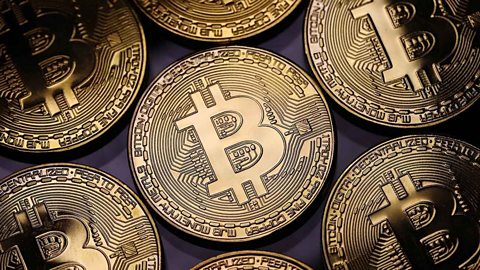
1. What is Bitcoin and how does it work?
Bitcoin is a form of digital money. This means it doesnāt have a physical form. Instead, units of digital currency are traded over a computer network that has some unique properties:
- It does not have any central points of control (there are no ābanksā)
- It does not have any central points of transaction storage (a central database that holds a record of all the transactions made).
Instead, it operates over a global network with thousands upon thousands of nodes - a machine within a network like a computer or some other device - which together process and store transactions.
Having thousands of nodes makes it difficult to have a common record of all the transactions - but a technology known as blockchain makes this possible.
Blockchain is a shared transaction record - it prevents anyone from ādouble spendingā bitcoins and makes it extremely hard for anyone to alter historical transactions. It is very hard, if not impossible, to shut down or interfere with.


Glossary
Node: A machine that takes part in the global network by running the bitcoin software.
Blockchain: A database of financial transactions which constantly grows as new transactions or āblocksā are added to it, forming a continuous and public chain of data.
Cryptocurrency: Digital, decentralized currencies that uses cryptography for security.
Cryptography: The science of coding and decoding messages and data so as to keep them secure. For example, by encryption.

2. Where did it come from?
Bitcoin was first published as an idea on an electronic mailing list for computer scientists who study secure communications (or cryptographers) in 2008.
The author has the mysterious pseudonym Satoshi Nakamoto, but no individual (or group of people) has so far been decisively identified as Satoshi.
3. Is it still being used, and where can you use it?
Bitcoin is still used and is very actively traded on cryptocurrency exchanges, which allow users to swap āordinaryā money like pounds for bitcoins.
To use Bitcoin, the first step is to create a wallet (which can be online, a mobile app, or, for higher security, a hardware device). This protects the secrets that are used to authorise the movement of bitcoins under your control.
Your wallet will control various āaddressesā, which, like bank account numbers, can be used to receive bitcoins. It will also control the secret password that is needed to authorise the sending of bitcoins (technically known as a private key). If you lose your private key, or it is stolen, you effectively lose control over your bitcoins, a bit like if someone found out your PIN number.
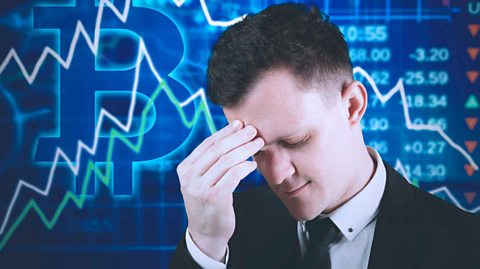
4. Why would someone want Bitcoin instead of ānormalā money?
The ānormalā money we use today is actually rather unusual in the history of money, in the sense that it is no longer itself precious (like gold coins).
Now if you read the promise on a Ā£10 note, it says (in very small letters):
"I promise to pay the bearer on demand the sum of ten pounds."
(Next time you find a tenner in an old pair of jeans - have a look.)
That's not too much of a promise if you consider that all the backing authority (like the Bank of England) has to do is to print another piece of paper to satisfy that promise.
As more and more money is created, it erodes the value of the existing money in circulation. People don't necessarily notice this erosion because the nominal amount of their money remains the same; however, they do notice that their weekly shop, eating out, and watching movies costs more and more money.
Bitcoin is different.
The supply of bitcoins is carefully controlled and limited, and no one can create or issue more bitcoins at will. There will never be more than 21 million bitcoins; and each bitcoin is itself divisible into 100 million units known as Satoshis. This prevents the kind of erosion of value that plagues ānormalā currency (a phenomenon that the residents of Zimbabwe and Venezuela know only too well).

5. Can Bitcoin make you a millionaire?
Bitcoin is a high-risk, speculative, volatile asset. Like many high-risk investments, it goes through boom and bust cycles and, depending on when you buy (or acquire) it, it can make you either a millionaire or bankrupt you.
In the early days Bitcoin traded for $1 per bitcoin; it peaked at around $20,000 (Ā£15,400) in 2017 before plunging to around $3,000 (Ā£2,300) then settling around $8,000 (Ā£6,200).
Like a share or a house, bitcoins are worth nothing more or less than what other people are prepared to pay for them.
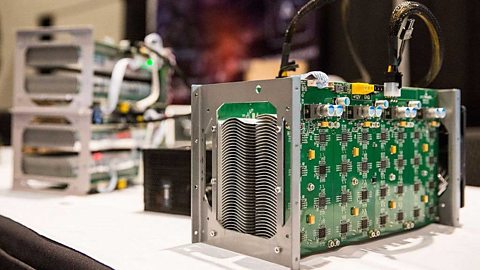
6. What is Bitcoin mining?
Bitcoin mining is the process of adding new groups of transactions (known as blocks) to the shared transaction record (known as the blockchain).
There is a big worldwide competition going on all the time - known as the mining race - to win the right to add a new block to the blockchain.
Entering this competition requires users to purchase specialist mining hardware that consumes quite a bit of electricity; the hardware itself is likely to become rapidly obsolete due to more efficient hardware being invented all the time - so it is not a profitable activity for most people.
The people who do this are called Bitcoin miners. They take part in this competition for two kinds of rewards:
- the block reward (currently 12.5 BTC) issued to the publisher of every block
- transaction fees - fractions of bitcoins that incentivise miners to include transactions in published blocks.
To make matters worse (from a minerās perspective), the ādifficultyā of the competition increases as more miners get involved; this is done to avoid issuing new bitcoins too quickly. The block reward also halves every four years, making them much more expensive to produce.

7. Can we trust cryptocurrencies?
Like any fast developing space mushrooming with new technologies, there are higher quality cryptocurrencies and lower quality ones.
In the face of often-slick marketing operations, many ordinary people understandably struggle to tell which cryptocurrencies have real potential and have genuine points of technical novelty, and which are simple clones of other currencies, or, worse, outright scams.
Sometimes, schemes like One Coin have claimed to be cryptocurrencies, but have then turned out to be nothing more than well-organised pyramid frauds backed by a centralised database. The “óĻó“«Ć½ carried out an investigation into this recently in their āThe Missing Cryptoqueenā podcast series.
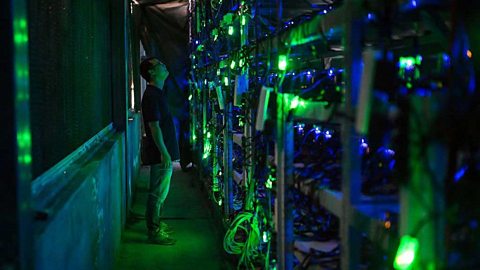
8. Could cryptocurrency become more popular than physical currency in the future?
This is theoretically possible, but it will likely take many years and will require many technical, economic, regulatory and legal issues before it becomes a reality.
For example, the Bitcoin blockchain can currently support much fewer transactions than traditional centralised payment networks like Visa or Mastercard.
One class of cryptocurrency that is proving to be very popular and perhaps stands a better chance at becoming more popular than physical currency are so-called āstable-coinsā, that is cryptocurrencies whose value is linked to ānormalā currencies like the US dollar, the euro and the pound, so that unlike Bitcoin, one unit canāt be worth Ā£26,000 one year, and Ā£6,000 two years later.

Deepfakes: What are they and why would I make one?
We asked Alan Zucconi, lecturer in Artificial Intelligence, about the science of deepfakes.

Ten amazing scientific and technological breakthroughs of the 2010s
From lab-grown burgers to water on Mars.
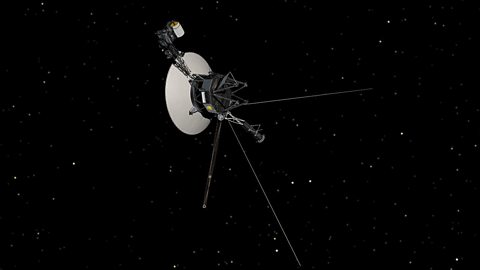
The games (and gamers) that made history
If you want to know who's making Ā£3 million playing video games, look no further.
